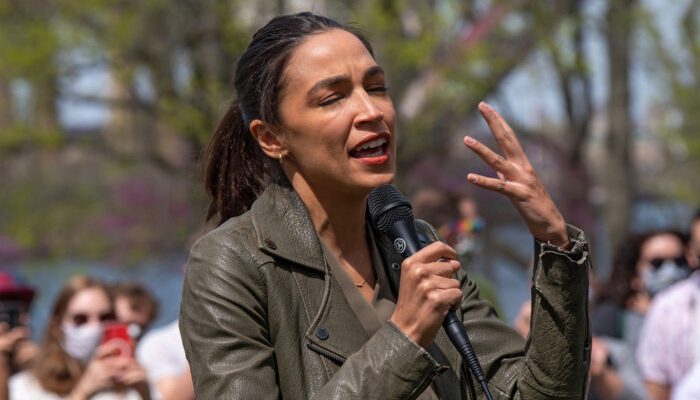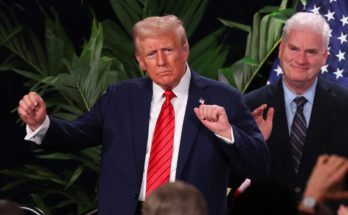Representative Alexandria Ocasio-Cortez (D-NY) recently encountered criticism for her remarks regarding the potential impact of tariffs on goods imported from Colombia, suggesting that these tariffs could result in higher prices for American consumers purchasing coffee. While former President Trump has promoted his tariff policies as a means to safeguard American industries, Democrats have argued that such measures may contribute to inflationary pressures on domestic prices.
Ocasio-Cortez’s economic analysis coincided with a brief conflict between President Trump and Colombian President Gustavo Petro concerning the deportation of illegal immigrants back to Colombia. After Petro initially indicated he would not comply with Trump’s directive to return these individuals directly, Trump threatened to impose a 25 percent tariff on all Colombian imports to the United States. Subsequently, Colombia agreed to accept the deportees.
In addressing the situation, President Trump stated, “We will not allow the Colombian Government to violate its legal obligations regarding the acceptance and return of the criminals they forced into the United States!” Nevertheless, Trump faced opposition from liberal critics, including Ocasio-Cortez.
In a post on X, the member of the progressive “Squad” remarked, “To ‘punish’ Colombia, Trump is about to make every American pay even more for coffee. Remember: WE pay the tariffs, not Colombia.” She further implied that Trump’s actions were driven by self-interest, asserting, “Trump is all about making inflation WORSE for working-class Americans, not better. He’s lining the pockets of himself and the billionaire class.”
Following her assertions regarding Trump’s policy, Ocasio-Cortez was fact-checked on her statement that consumers would ultimately bear the cost of the increased price of imported coffee. As noted by John Carney, economics editor at Breitbart News, “While critics of tariffs frequently claim that importers will pass the cost of tariffs on to consumers, there is little evidence to support that view. When Trump imposed tariffs on goods from China and on imported steel and aluminum, the prices of consumer goods…”
Continuing to elaborate on AOC’s economic argument, he stated, “Generally, when a significant economy enacts tariffs, exporters tend to lower their prices to maintain competitiveness and protect their market share. Consequently, a substantial portion of the tariff’s burden falls on the exporters rather than the consumers. In cases where exporters do not absorb the tariffs, the costs are typically taken on by the importing merchants instead of the end consumers.”
Critics on social media expressed their disapproval of AOC’s perspective in the comments section of her post. One individual remarked, “You clearly do not understand how tariffs function.” Another commenter noted that the United States imports coffee from various countries beyond Colombia, stating, “We source coffee from multiple nations, including Honduras, Guatemala, Mexico, Ecuador, Brazil, Ethiopia, Kenya, and Indonesia, in addition to Colombia.”
In discussing the economic ramifications of tariffs, one individual remarked, “Tariffs are ultimately paid by the country on which they are imposed; this is basic economics. We import coffee beans from numerous countries, so any price increase would likely affect only specific brands, leading consumers to opt for more affordable coffee options.” A supporter of Trump emphasized the rationale behind such measures, asserting, “If you possessed any understanding of the situation, you would realize that we do not directly pay the tariffs. Instead, they encourage consumers to purchase domestically produced goods or prompt companies to relocate, thereby enhancing the overall wealth of the nation.”



